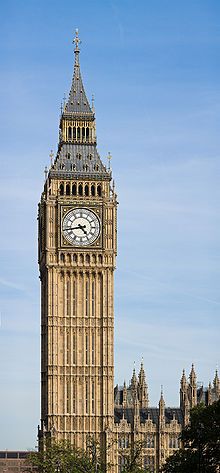“Punting the Pundits” is an Open Thread. It is a selection of editorials and opinions from around the news medium and the internet blogs. The intent is to provide a forum for your reactions and opinions, not just to the opinions presented, but to what ever you find important.
Thanks to ek hornbeck, click on the link and you can access all the past “Punting the Pundits”.
Follow us on Twitter @StarsHollowGzt
Richard (RJ) Eskow: December Surprise? From Rubin to Pelosi, Wall Street & DC Dems Push Post-Election Austerity
On a recent Meet the Press face-off between Democrats and Republicans, a politician claimed we urgently need to cut government spending. He embraced a plan to slash vital government programs and gut retirement security, while actually cutting taxes for the rich. The only tax hikes in his plan were targeted toward the already-devastated middle class.
Then it was time for the Republican to speak.
Who’d have thought it? Progressive stalwarts like Minority Leader Nancy Pelosi and Sen. Dick Durbin are pushing the same radical austerity plan as Jamie Dimon, CEO of troubled megabank JPMorgan Chase, and Robert Rubin, the Clinton Treasury Secretary who represents everything that’s broken about the Wall Street/Washington axis.
Mark Weisbrot: Europeans’ Economic Future Has Been Hijacked by Dangerous Ideologues
EU authorities, supported by Spain’s government, are pushing a political agenda at the expense of economic recovery
I have argued for some time now that the recurring crisis in the eurozone is not driven by financial markets’ demands for austerity in a time of recession, as is commonly asserted. Rather, the primary cause of the crisis and its prolongation is the political agenda of the European authorities – led by the European Central Bank (ECB) and European commission. These authorities (which, if we included the IMF constitute, the “troika” that runs economic policy in the eurozone) want to force political changes, particularly in the weaker economies, that people in these countries would never vote for.
This is becoming more blatantly obvious here in Spain, where the government – run by the rightwing Popular party (PP) – shares the political agenda of the European authorities, perhaps even more than the IMF does. The PP government has taken advantage of the crisis to impose labour law changes that will make it easier for employers to get out of industry-wide collective bargaining agreements. They have also taken away rights that workers’ had to challenge unfair firings. The goal is to weaken labour as part of a longer-term strategy to dismantle the welfare state; these changes have nothing to do with resolving the current crisis, or even reducing the budget deficit.
No reporter has ever asked him as far as I know. I don’t know if any will ask this time around. What did you mean by “Change” anyway? He ran a whole campaign on it and does anyone really know what Barack Obama meant he was going to change?
I’m in the camp that he hasn’t changed a damn thing. People will counter with Lilly Ledbetter. It’s a lovely law, but does anyone really believe that’s what was meant by the grandiose statement “Change”?
Of course I use Lilly Ledbetter as a symbol. President Obama obviously has more accomplishments than that. He really did change the laws and many people’s perceptions on gay rights for example. Don’t Ask, Don’t Tell is history. The government is no longer defending the Defense of Marriage Act. And the President of the United States is finally for gay marriage. But did people really think Senator Obama meant he would change gay rights legislation? Is that what the 2008 election was about?
Jim Hightower: Who Needs Wall Street Giants?
JPMorgan Chase, Goldman Sachs, Bank of America and the handful of other behemoths of Wall Street that dominate American banking – who needs them?
After enduring years of insatiable greed by the slick-fingered hucksters who run these gambling houses; after watching in dismay as their ineptness and avarice drained more than $19 trillion from America’s household wealth since 2007 and plunged our real economy into the worst financial crisis since the 1930s Depression; after witnessing their shameful demands for trillions of dollars in taxpayer bailouts to save their banks and their jobs; and now after seeing them return immediately to business as usual, including paying multimillion-dollar bonuses to themselves — we have to ask: Huh!?!
Oh, no-no, cry the banking titans, don’t even think of looking behind the curtain! Trust us, say these Wall Street alchemists, for we are essential to juicing the economy with our complex abracadabra investment schemes.
Amy Goodman: WikiLeaks, War Crimes and the Pinochet Principle
WikiLeaks founder Julian Assange’s protracted effort to fight extradition to Sweden suffered a body blow this week. Britain’s Supreme Court upheld the arrest warrant, issued in December 2010. After the court announced its split 5-2 decision, the justices surprised many legal observers by granting Assange’s lawyers an opportunity to challenge their decision-the first such reconsideration since the high-profile British extradition case from more than a decade ago against former Chilean dictator Augusto Pinochet. The decision came almost two years to the day after Pvt. Bradley Manning was arrested in Iraq for allegedly leaking hundreds of thousands of classified U.S. government documents to WikiLeaks. The cases remind us that all too often whistle-blowers suffer, while war criminals walk.
Assange has not been charged with any crime, yet he has been under house arrest in England for close to two years, ever since a “European Arrest Warrant” was issued by Sweden (importantly, by a prosecutor, not by a judge). Hoping to question Assange, the prosecutor issued the warrant for suspicion of rape, unlawful coercion and sexual molestation. Assange offered to meet the Swedish authorities in their embassy in London, or in Scotland Yard, but was refused.
Bill Boyarsky: Who Will the President Kill Next? It’s a Secret
The revelation that President Barack Obama is personally selecting names for a kill list of suspected al-Qaida terrorists is a striking illustration of what actually occurs behind the White House’s closed doors.
The New York Times revealed Tuesday how the president “has placed himself at the helm of a top secret ‘nominations’ process to designate terrorists for kill or capture, of which the capture part has become largely theoretical.” He insists “on approving every new name on an expanding ‘kill list,’ poring over terrorist suspects’ biographies on what one official calls the macabre ‘baseball cards’ of an unconventional war.”
The Times described how more than 100 members of “the government’s sprawling national security apparatus” meet in a video conference to go over potential nominees for the death list and “recommend to the president who should be the next to die.” The nominations then go to the White House where Obama, guided by his top counterterrorism adviser, John O. Brennan, approves names added to the list.
Willaim Pfaff: The Age of Drones
Counterinsurgency is out. Drones, assassination teams, targeted killings and special forces are in. A New York Times report on May 27 described the “existential debate” going on inside the faculty at West Point, the national military academy. Counterinsurgency doctrine from Vietnam-and the Philippines “insurgency” of 1899-1902-was refurbished by Gen. David Petraeus in the closing period of the Iraq War, and, combined with a sharp increase in troop strength (the “surge”), it was credited with ending the war there by confirming the Nouri al-Maliki Shiite government unsteadily in place.
After taking office as president, Barack Obama looked for a comparable success in Afghanistan. After consultations in Washington, and with Petraeus and the new commander of U.S. and Allied forces in Afghanistan, Gen. Stanley McChrystal, the president authorized a new “surge,” patterned on what seemed to have worked in Iraq. However, he added an important clause: The American troop reinforcement would be withdrawn in 18 months.
Hence his assurance to NATO officials in Chicago last week that U.S. (and NATO) combat forces are on their way out.

 On this day in 1859,
On this day in 1859,  The main bell, officially known as the Great Bell, is the largest bell in the tower and part of the Great Clock of Westminster. The bell is better known by the nickname Big Ben.
The main bell, officially known as the Great Bell, is the largest bell in the tower and part of the Great Clock of Westminster. The bell is better known by the nickname Big Ben.
Recent Comments